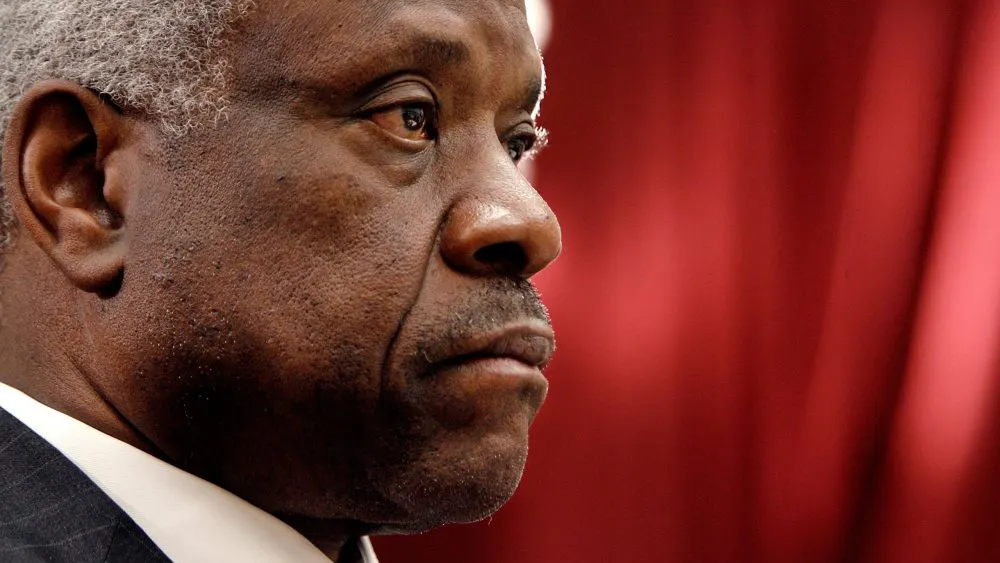On Monday, Supreme Court Justice Clarence Thomas seemed to argue that social media companies such as Facebook and Twitter may not be able to hide behind the First Amendment in their attempts to regulate various forms of speech on their platforms.
Most notably, the legendary Justice compared the Big Tech giants to “common carriers” and “public accommodations.”
“Even if digital platforms are not close enough to common carriers, legislatures might still be able to treat digital platforms like places of public accommodation. Although definitions between jurisdictions vary, a company ordinarily is a place of public accommodation if it provides ‘lodging, food, entertainment, or other services to the public … in general,’” Thomas wrote, adding that “Twitter and other digital platforms bear resemblance to that definition.”
“Once again, a doctrine, such as public accommodation, that reduces the power of a platform to unilaterally remove a government account might strengthen the argument that an account is truly government controlled and creates a public forum,” Thomas continued. “The similarities between some digital platforms and common carriers or places of public accommodation may give legislators strong arguments for similarly regulating digital platforms. ‘[I]t stands to reason that if Congress may demand that telephone companies operate as common carriers, it can ask the same of’ digital platforms.”
“That is especially true because the space constraints on digital platforms are practically nonexistent (unlike on cable companies), so a regulation restricting a digital platform’s right to exclude might not appreciably impede the platform from speaking,” Thomas added.
Thomas then noted that “None of this analysis means, however, that the First Amendment is irrelevant until a legislature imposes common carrier or public accommodation restrictions — only that the principal means for regulating digital platforms is through those methods,” which could be interpreted as a pre-emptive endorsement of Congress if they choose to impose common carrier or public accommodation restrictions to social media platforms.
Later, Thomas referenced the contentious issue of Section 230.
“Threats directed at digital platforms can be especially problematic in the light of [Section 230], which some courts have misconstrued to give digital platforms immunity for bad-faith removal of third-party content,” Thomas said. “This immunity eliminates the biggest deterrent — a private lawsuit — against caving to an unconstitutional government threat.
“The Second Circuit feared that then-President Trump cut off speech by using the features that Twitter made available to him. But if the aim is to ensure that speech is not smothered, then the more glaring concern must perforce be the dominant digital platforms themselves. As Twitter made clear, the right to cut off speech lies most powerfully in the hands of private digital platforms. The extent to which that power matters for purposes of the First Amendment and the extent to which that power could lawfully be modified raise interesting and important questions. This petition, unfortunately, affords us no opportunity to confront them,” Thomas concluded.

.png)
.png)

